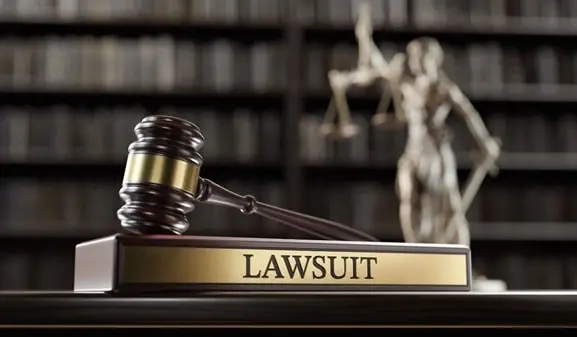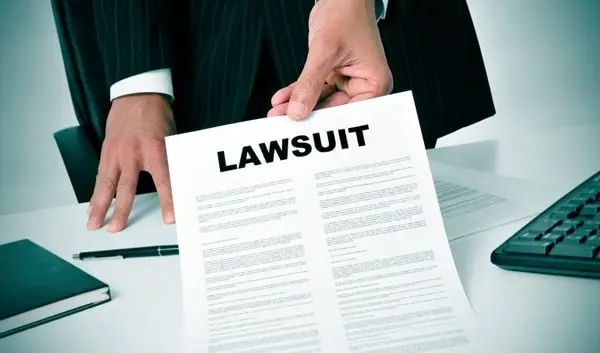Hummer Winblad Venture Partners, a well-known venture capital firm, has been entangled in legal battles for years due to its investment in Napster, the infamous peer-to-peer file-sharing service that revolutionized digital music distribution in the late 1990s and early 2000s. The venture capital firm’s $15 million investment in Napster, which helped the company expand rapidly, has placed it at the center of lawsuits initiated by the music industry. These lawsuits highlight the complex relationship between investors and the companies they support, particularly when those companies find themselves on the wrong side of copyright law.
The Napster Connection and Legal Claims
Hummer Winblad’s involvement with Napster began when the firm invested heavily in the platform in early 2000, ultimately taking an active role in its operations. At the time, Napster was under intense scrutiny for facilitating the sharing of copyrighted music without proper licensing. While Napster became a phenomenon, attracting millions of users, it also drew the ire of major music labels like Universal Music Group (UMG) and other industry giants, who accused Napster of rampant copyright infringement.
In 2001, lawsuits were filed against Napster’s investors, including Hummer Winblad, alleging that the firm played a direct role in the company’s operations, making it complicit in the illegal sharing of copyrighted material. Hummer Winblad was accused of being more than just a passive investor, with claims that its partners were deeply involved in Napster’s strategy, effectively making them liable for the company’s actions. UMG and other plaintiffs argued that the firm not only provided financial backing but also influenced decisions that allowed Napster to continue its file-sharing practices despite the clear legal risks.
Legal Proceedings and Key Developments
The legal fight has been protracted, with courts debating the extent of Hummer Winblad’s liability. In 2004, a federal judge allowed the lawsuit against Hummer Winblad and Bertelsmann AG (another major Napster investor) to proceed, denying their motions to dismiss the case. The court ruled that there was sufficient evidence to argue that the investors could be held responsible for Napster’s copyright violations due to their involvement in its day-to-day operations.
One of the central issues in the lawsuit was whether Hummer Winblad’s actions as an investor crossed the line into operational control, which would expose the firm to liability. Plaintiffs presented emails and other communications suggesting that Hummer Winblad’s partners were directly involved in key decisions, including the company’s attempts to negotiate with record labels while continuing to operate its service.
The Broader Implications for Venture Capital Firms
The lawsuit against Hummer Winblad has raised critical questions about the role of venture capital firms in the companies they fund. Traditionally, venture capitalists provide financial resources and strategic guidance, but they are not typically held liable for the operational decisions of the businesses they invest in. However, in this case, the plaintiffs argued that Hummer Winblad’s level of involvement went beyond that of a typical investor, making the firm an active participant in Napster’s legal violations.
This case has had broader implications for venture capital firms across the industry. It serves as a cautionary tale for investors, who may face legal risks if they are perceived as playing too active a role in companies that engage in questionable practices. The Napster lawsuits have made it clear that investors can be drawn into legal battles if they are seen as enabling or encouraging illegal activities.
Potential Outcomes and Future Developments
As of the latest reports, Hummer Winblad is still facing potential financial penalties, although the firm has fought vigorously to distance itself from Napster’s legal troubles. The outcome of the lawsuits could result in substantial fines and damages, which would serve as a precedent for future cases involving venture capital firms and the companies they support.
Additionally, the music industry’s aggressive pursuit of Napster’s investors has sent a strong message to other technology companies and their backers: investors must exercise caution and ensure that the businesses they support are operating within legal boundaries. The case also underscores the importance of due diligence, particularly when investing in disruptive technologies that challenge existing legal frameworks.
Conclusion
The Hummer Winblad lawsuit is a critical chapter in the legal history of Napster and the broader technology and venture capital industries. While Napster itself no longer exists, the legal ramifications of its business model continue to reverberate. The ongoing litigation serves as a reminder that investors are not immune from the consequences of the companies they fund, particularly when those companies push the boundaries of the law. For Hummer Winblad, the legal challenges stemming from its involvement with Napster represent a cautionary tale for other venture capitalists, highlighting the fine line between providing strategic guidance and becoming legally liable for a company’s actions.


